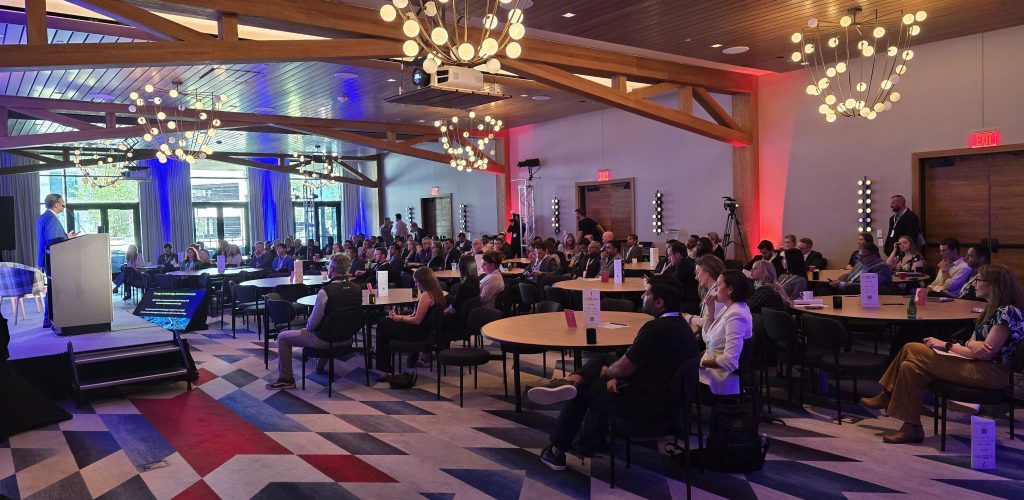Fireside Chat: Amy Lenander, Chief Data Officer, Capital One
Strategic data leadership in an AI-enabled enterprise
In a thoughtful conversation with DataIQ advisor Randy Bean, Capital One’s Chief Data Officer—and number one in the 2025 DataIQ 100 North America—Amy Lenander offered her perspective on what it means to lead a data function with real business authority.
Drawing on more than two decades at Capital One—including time as CEO of its UK business—Lenander positioned data and analytics as the core of the company’s competitive advantage.
Key takeaways:
-
Adopt an offensive mindset: View data through a business opportunity lens. Even traditionally defensive areas like fraud detection can generate growth—for example, by enabling more customer spend.
-
GenAI requires central oversight: While analytics at Capital One is federated, generative AI is governed centrally. This allows Lenander’s team to manage emerging risks and ensure consistency in development and deployment.
-
Separating data and AI leadership strengthens focus on fundamentals: The CDO and Chief AI Officer roles are deliberately distinct—allowing each function to concentrate on what it does best. For Lenander, this means sustained focus on building the data ecosystem that underpins successful AI innovation.
-
Product managers are critical to data democratization: Treating internal data platforms as products—rather than infrastructure—ensures they’re designed for usability, adoption, and long-term value, not just technical completion.
-
Responsible AI is rooted in responsible data: Embedding governance and automating wherever possible—from lineage capture to data tokenization—enables data to be scaled safely and at speed.
-
The path to effective data leadership is through change: Success as a CDO is not about technical depth alone. It depends on learning how to lead change—through influence, alignment, and a deep understanding of the business.
Keynote: Ashish Verma, US Chief Data and Analytics Officer, Deloitte
Building the strategy and structure to scale AI
In a detailed keynote, Ashish Verma, US Chief Data and Analytics Officer at Deloitte and one of DataIQ 100’s Top Enablers, set out a pragmatic yet ambitious view of how enterprises can move from experimentation to scaled, sustainable AI solutions. Speaking from first-hand experience of operating within one of the most complex and data-intensive global organizations, Verma argued that successful AI initiatives are not defined by technical capability, but by the clarity of their strategic intent and the infrastructure that supports them.
He framed Deloitte’s AI journey as one grounded in long-term value, challenging leaders to treat AI as a business transformation agenda rather than a technology initiative.
Key takeaways:
- Reimagining the future reshapes priorities: Successful AI implementation begins by understanding the problem being solved, and use case selection is guided not by feasibility alone, but by the opportunity to redefine how the business operates. This future-back approach shifts how success is measured, placing long-term value above near-term outputs.
-
Data pipelines are a major constraint to scaling. A data marketplace unlocks it: To make data searchable, indexable and discoverable, Deloitte has developed an internal marketplace of over 500 datasets—spanning internal, third-party, synthetic, and public data—paired with concierge provisioning and embedded governance. This foundation enables speed and control in equal measure.
-
Design for deployment even in POC phase: Verma stressed the need to avoid POC fatigue. No initiative proceeds without a clear pathway to deployment, an accountable business sponsor, and measurable outcomes.
-
Buy and build strategically: Deloitte doesn’t adhere to one approach. Instead, the decision to build internally or buy externally is driven by the use case, maturity of the solution, and the speed at which value can be delivered.
-
Scaling AI is as much about people as platforms: Deloitte is investing in AI fluency, product thinking, and cross-functional teaming. Organizational readiness, not technical architecture, is often the bigger barrier to impact.
Collaboration in Action: Knowledge Exchange Sessions
In the afternoon, delegates joined two rounds of interactive roundtable discussions, each tackling one of the industry’s most pressing questions: ten topics, ten expert moderators delving into:
- How do I accelerate AI / Gen AI readiness adoption by getting data ready?
- As AI reshapes leadership roles, how is the Chief Data Officer evolving in the enterprise?
- What frameworks and strategies are needed to ensure responsible and explainable AI adoption across the business?
- How are companies overcoming legacy challenges to enable AI-powered decision-making at scale?
- With AI now analyzing and interpreting data, what role remains for human expertise?
- How are organizations structuring data, AI, and engineering teams to maximize collaboration and impact?
- What practical AI applications are delivering measurable success in customer experience, operations, and analytics?
- Where is AI making a meaningful impact beyond automation, and what’s next for AI-enabled decision intelligence?
- As AI transforms data into a strategic asset, how are businesses unlocking new revenue opportunities?
- What tech investments and strategies will ensure long-term AI scalability and flexibility?
Closing with Celebration: The 2025 DataIQ100 Reveal and Awards
The day ended on a high with a celebration of leadership and impact with the live reveal of the 2025 DataIQ100 honoring the individuals driving real change through data and AI across North America.
Find out here who made the Top 10 of North America’s most influential and data and AI leaders.
Read Day 2 highlights from Nashville here.





